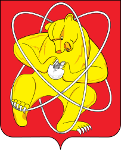|
Baloogan posted:Yet IJA's generals were in China from 31 to 41, and with no victory in sight they decided to go after even bigger countries. How dumb is that? The usual explanation is that they didn't know the true capabilities of the USA and UK, but yet Japan was allied to both in WW1, I'm pretty confident several officers were in Europe in WW1 as liaisons and observers, so there is no way they didn't know how much men and material they could pour. Moreoever, the IJA was already strained to its maximum in China; it's not possible that the generals didn't realize that. This is going to be a really unsatisfying answer compared to the length of your question, but maybe it's something to do with the massive power struggle between the army and navy? As far as I can hazily remember they were constantly conflicting about which way to strike, with the Emperor dithering about in the middle. As a result there wasn't much coordination at that kind of grand strategy level.
|
|
|
|

|
| # ? Apr 27, 2024 01:44 |
|
Supposedly intelligent people can make decisions that look grossly incompetent in hindsight. For a good example of this in the context of war, read The Guns of August, which is a classic about the start of WWI. Every power at the start of WWI thought the conflict would be over in a few months, and that they would be the victor. Japan thought that Pearl Harbor would scare the US into giving them a free hand in the Pacific. The US thought that they would be greeted as liberators by the Iraqis when they deposed Saddam Hussein. Hubris and nationalism play a part in these decisions, and there is an incentive to put on rose colored glasses. No matter what kind of government you have, there are different factions that need to be convinced to go to war, and it is a lot easier to sell a brief, decisive war than it is to sell a protracted conflict. People with negative views are marginalized, when you're trying to rally the troops you don't need some guy going on about how the leader's grand plan is wrong.
|
|
|
|
Clevername Lookhere posted:Voted 5 for your ridiculous knowledge of military history. Well done. OP correct me if I'm wrong, but what I heard from my history professors was that whole Farmer Dan with his musket hiding behind a rock and picking off red coats is a propaganda lie. It's a great underdog story, but is ultimately false. Say you're a farmer hiding behind a tree with your family musket. You see a red coat and fire. 1) You will miss. 2) You just made a big bang and a huge smoke cloud that shows your location to everyone. 3) You are now unarmed since your gun takes a good 30 seconds to reload. 4) The red coat runs over, stabs you with his bayonet, and twists the blade for good measure. As you lie dying, you wonder what went wrong with your clever plan... Consider the Revolutionary War era firearm. They're loud, inaccurate, take forever to reload, and smokey as hell. The only way to prevent the enemy from simply running up and clubbing / stabbing you, is to mass the fire and have your men fire and reload in ranks. Even then, the shooting was only half the battle. A fight was usually decided by a final bayonet charge after one side was sufficiently demoralized from all the shooting. That's why the British wore those big funny hats and bright red coats. Imagine 100 angry Red Coats with bayonets coming to stick your fat goon rear end! The Revolutionary War was won by the American Revolutionary Army. Led by generals and officers like Washington, that Polish guy, and some French dudes. It's basically the same army that the British fielded, with the whole lining up and blasting away, field artillery pieces, bayonet charges, etc. Individual farmers didn't really do that much. Note: There were some geurilla units that used rifles and poo poo to snipe at enemy officers. They were fairly effective. But don't be mislead into thinking that geurillas won the war.
|
|
|
|
Since you've specialised in Russian and USSR military history, I'd like to hear a 3rd party judgement on something that has occasionally been a subject of heated debate in my circle of friends. Whenever the role of the military is discussed in Finnish society, it always seems to be a broadly accepted axiom that Russia has and always will have a special interest in occupying particularly Finnish and generally Nordic territory. This idea doesn't make much sense to me, but I'd like to hear your take on the issue.
|
|
|
|
How does a small island nation like England come to dominate, at some point, every continent on the planet except one?
|
|
|
|
Doppelganger posted:How does a small island nation like England come to dominate, at some point, every continent on the planet except one? Because Britannia rules the waves, boy! Don't you forget it! Serious: Which continents do you mean? Excluding the 'lol antarctica' answer I don't think we could really claim to have 'dominated' Europe, South America, Asia, or even really Africa. Much of the North American continent was never under British control, etc. Squibsy fucked around with this message at 12:23 on Apr 29, 2010 |
|
|
|
Slo-Tek posted:Talk me some Battle of Tsushima Strait. Actually, the Wiki Page on this is pretty thorough. The only thing I would really hasten to add is that Tsushima was not really the first time an Oriental naval power surpassed a Western one. In the mid-1600's there was a Chinese pirate named Zheng Chinggong, or Coxinga, who maintained a personal fleet of more than 3,000 ships. Coxinga actually kicked the Dutch off the island of Taiwan and created his own pirate kingdom, which lasted only a short time after his death. Even so, his life gives lie to the idea of inherent Western military superiority in the early modern period. Jarlaxle posted:Is the concept of a "special forces" unit a fairly recent invention (as in, post-1800's or so) or does it go back further? If so, where did it get its start? Not trying to be a goony armchair green beret here, I just find the highly-trained small strike team a little more interesting than the usual rank & file of other units. "Special Forces" have actually been around as long as regular forces have. For example, if you take Homer's Iliad to be at least partially representative of actual events, the men stationed inside the Trojan Horse would qualify as "commandos," infiltrating an enemy stronghold and creating an opportunity for regular forces to prosecute a successful attack. A more certainly real example would be Thebes' Sacred Band. This was an elite group of 300 hoplites, arranged into 150 male-male couples. The idea here was that if each member of the group was the lover of another, he would be more compelled to fight fiercely in order to protect his mate. This group had a very impressive battle record, even defeating the Spartans at the Battle of Leuctra. DumbWhiteGuy posted:What are your thoughts on the conspiracy theory that the Allies knew Pearl Harbor was going to get attacked and let it happen in order to force America into the war? I don't know much about it but my friend was talking about it the other day so I'd like to see what you think. I think that if this was the case, it was a really dumb idea. If the point was to have an excuse to enter the war, the simple fact that the Japanese attacked would have been enough. Letting them cause such incredible damage to boot would not have been at all necessary, and would have constituted an enormous risk that was unlikely to be worthwhile. err posted:Who is the greatest military-tactician/leader in history? ODC posted:... how does this correlate with someone like Alexander the Great or Napoleon? Was the political goal total domination or was the ominous goal the reason for the failure? To some extent, Napoleon was similar. While there are some who would argue that his conquest of Europe was intended to form a sort of proto-"European Union", and therefore represents very forward political thinking, his invasion of Russia suggests otherwise. I think that he simply lost touch with political reality and embarked on a fool's crusade to satisfy his own ego.
|
|
|
|
Doppelganger posted:How does a small island nation like England come to dominate, at some point, every continent on the planet except one? If I may: Money. The UK was a trade monolith and ruled through hegemony meaning that culture and trade were the primary tools of the Empire. If you fuckup, the stick, in the form of the Royal Navy, the Army and later, the RAF, will come down on your sorry rear end. The old adage of how the British will go and kill half of your African tribe, then co-opt the rest into their Native Auxiliaries while rebuilding the territory is not altogether off base. Sure, the British were looking for No. 1 first but it was decided that it was easier to co-opt as much of the Empire as possible. This is, of course, the capsule version but look at any former British territory and you will, most likely, find there hallmarks: A love of British sports (Cricket, Football), British style government, British inspired uniforms, a predominance of English.
|
|
|
|
Doppelganger posted:How does a small island nation like England come to dominate, at some point, every continent on the planet except one? Short answer: It was close enough to mainland Europe to benefit from the military (and non-military) tech advances, yet was insulated by the English Channel, so it wasn't bogged down in constant actual warfare like that which plagued the rest of mainland Europe. Britain's Navy was pretty good. They had lots and lots of lighter, faster ships with smaller guns that could turn, shoot, and maneuver faster than most other countries' ships. They quickly rose to second-best power on the sea, but the Spanish Armada was destroyed in a storm and Britain found itself with pretty much uncontested rule over every body of water it felt like sailing into. (Except the Mediterranean, but all the land in there was already taken so who cares anyway Also, England's nobles and the Church of England started kicking people off their rented farmland so that rich owners could put animals out there to graze, so there was a large population of peasants with nowhere to go. This was right around the time businessmen in Britain started to want to take colonists and soldiers overseas and start colonizing poo poo, and when they looked around for people to bring they were overwhelmed with all the poor starving homeless people chomping at the bit ready to get the gently caress out of England. There was a ready-made invasion army! BORING POLITICS PART:(this is oversimplified, disorganized, and misses a lot of points, but it's kind of helpful because there just so much to talk about) Also, Britain's kings were more goal oriented and less concerned about pomp and circumstance and social life early on. (as compared with the bullshit going on with France's kings, and how hundreds of noble people would line up every morning to watch King Louis wake up and take a poo poo and consider themselves privileged (seriously)) Also, England had a small Parliament while France had a gigantic bureaucracy of nobles and their extended families that kept growing every generation just so that parents could put their idiot, slack-rear end noble kids into a cushy government job where they didn't do anything but got a lot of money and status. (man, did France ever get tired of this poo poo eventually though..) ineptmule posted:Which continents do you mean? Excluding the 'lol antarctica' answer I don't think we could really claim to have 'dominated' Europe, South America, Asia, or even really Africa. Much of the North American continent was never under British control, etc. "Dominate" is a strong word, but I'd say they were at one point or another the supreme power on every continent except South America. Here have this cool gif.  Edit: Man every post in the thread could be about this and we'd still be lacking lots. Edit: Oh, I forgot about how they were drug pushers in East Asia! They made boatloads (heh) of money selling opium to Chinese people and the Chinese govt couldn't stand up to them. McNameeeeeeeeeeeeee fucked around with this message at 15:01 on Apr 29, 2010 |
|
|
|
What, if anything, could Denmark have done militarily to win the Second Schleswig War in your opinion?
|
|
|
|
Konstantin posted:Supposedly intelligent people can make decisions that look grossly incompetent in hindsight. For a good example of this in the context of war, read The Guns of August, which is a classic about the start of WWI. Every power at the start of WWI thought the conflict would be over in a few months, and that they would be the victor. Japan thought that Pearl Harbor would scare the US into giving them a free hand in the Pacific. The US thought that they would be greeted as liberators by the Iraqis when they deposed Saddam Hussein. Hubris and nationalism play a part in these decisions, and there is an incentive to put on rose colored glasses. No matter what kind of government you have, there are different factions that need to be convinced to go to war, and it is a lot easier to sell a brief, decisive war than it is to sell a protracted conflict. People with negative views are marginalized, when you're trying to rally the troops you don't need some guy going on about how the leader's grand plan is wrong. To some extent we were greeted as liberators in Iraq, namely anywhere outside of the Sunni triangle. I agree with your larger point though. As a perfect example, GEN Shinseki was forced into retirement for having the audacity to predict the occupation would take several years and several hundred thousand troops. EDIT to add a question into the mix: Have you read "The Blitzkrieg Myth", if so what did you think of it? Bulky Bartokomous fucked around with this message at 17:11 on Apr 29, 2010 |
|
|
|
This is an awesome thread.  Do you think if the Allies had pressed their advantage in the Battles of Narvik and destroyed the German troops in Northern Norway, instead of pulling back in order to lose in France, would it have made any difference in the larger picture of WW2?
|
|
|
|
Gabriel Pope posted:This is kind of a broad question, but what's your general opinion on the effectiveness of spear and pike tactics? It seems among a lot of casual strategy gamers that any sort of long pointy stick throughout the ages has a reputation as being what you handed out to your untrained peasants who weren't worth training with "real weapons", and if you mention anything about Switzers or tercios then you get the response "yeah well if pikes are so great how come Rome based its legions around swords " Is this attitude justified, or is it merely general sword fetishism? First off, Rome was not the only polity ever to establish an empire, so appealing to Roman practice is by no means a final answer to any question. Secondly, while spears are simpler and cheaper to manufacture than swords, their effective use depends just as much on solid training and tactics as a gladius. To examine the spear's effectiveness vis-a-vis the sword, let's approach this somewhat chronologically. The spear certainly appeared as a weapon long before the sword, since its construction can in fact be as simple as a "long pointy stick." Indeed, the spear has been ubiquitous throughout the world, in some form or another. So, given the ease with which spears can be constructed, the question is how best to employ them. Well, the problem with a spear is that it is really only effectively used in a stabbing motion. This limits offensive capability to one dimension: straight ahead from the wielder. Also, the wielder's sides are virtually unprotected. So, the somewhat obvious answer to the problem is to have a whole bunch of guys stand next to each other and hopefully extend your line beyond the ends of the enemy's line. As a bonus, if you make your spears a little longer, you can have two lines engaging the enemy! There are some significant constraints here. First, population is a concern. If you don't have enough men to extend your line further than the enemy's, you're probably going to be in trouble. Second, terrain can cause a problem. What if the battlefield is so narrow that both lines end up being the same length? How do you avoid a stalemate? These problems were addressed by different nations in different ways. The Persians, for example, simply conscripted enormous slave armies in order to guarantee numerical superiority. This was possible because they were situated in a highly populated region, and had been able to subdue numerous smaller populations, thus providing a large pool of manpower. The Greeks, however, had no such luxuries. The mountainous terrain of Greece virtually assured narrow battlefields, and individual poleis rarely had large surpluses of manpower. So, the Greeks focused on perfecting the cohesive othismos, or "push." This meant that when two phalanxes met, they would literally try to push each other off the battlefield. Of course, the pushing was always accompanied by stabbing, bashing, biting, kicking, and whatever else it took. In any case, unit depth and cohesion were the primary factors here. A phalanx that was not able to function as a solid unit would not be able to maintain the osthismos and would likely disintegrate, allowing the individual members to be quickly pursued and slaughtered. This version of spear-based phalanx warfare persisted for centuries in Greece, and was responsible for the major Greek victories at Platea and Marathon against much larger Persian armies. The phalanx, however, had not yet reached its full potential. The king of a backwater greek polis, namely Philip II of Macedon, began to build a new type of army based on the phalanx. First, he used a new type of spear, the sarissa, which was 14 feet long compared to the typical 6 to 9 foot hoplite spear. This allowed Philip's phalangites to make contact with the enemy with near impunity. However, it greatly reduced their tactical mobility since maneuvering such a weapon was very difficult. Philip also added the important element of cavalry to his army. Thus, the Macedonian phalanx would approach the enemy in a straight line, pin him down by attacking while still out of his reach, and wait for the cavalry to swing around the enemy's exposed flanks. The phalanx no longer represented the real offensive strength of the army, but rather was the anvil to the cavalry's hammer. This was the army used by Philip's son, Alexander the Great, to subdue the mighty hordes of the Persian Empire within the course of a decade. So, spear based tactics are obviously not something to be blown off. Now let's examine the Roman legions. First, it's important to understand that the Roman Legion was not some type of immutable ultimate war machine. The legions changed their makeup and tactics over time just like any other military force. In its earliest form, it actually resembled a Greek hoplite phalanx, though probably less expert in its activities. Over time, Rome gradually subdued its neighbors with this phalanx and added their manpower to its own strength. This was a very important factor that differentiated Rome from other polities, but I don't want to go too far into it here. More to the current point, the legions began to change from a strictly spear-based unit to a more flexible organization based on maniples. The exact organization and use of maniples is not known, but we do know that there were three primary types of manipular soldier: The Hastatus (pl. hastati), the youngest and most lightly armed; the Princeps (pl. principes), older and more heavily armed; and the Triarius (pl. triarii), the oldest and most heavily armed veterans. It is relevant to point out that the Triarii were considered the backbone of the army, and still wielded spears as their primary weapon. Indeed, if a battle went so badly that even the triarii were hard pressed, it was considered to be a desperate situation, which gave rise to the Roman saying, "It has come down to the triarii." So, back to the actual maniples. These were tactical subdivisions of the legion that were capable of basic individual action. So, rather than having one large mass of men, the Roman legion was divided into smaller, more flexible units. This meant that the entire legion did not need to engage the enemy simultaneously, but rather could constantly reinforce itself while withdrawing fatigued units. It also allowed flanking maneuvers. This ability gave the legions an important advantage over the Greek phalanx, as exhibited at the battle of Cynoscephalae in 197 BC. In this battle, a mid-ranking Roman officer noticed a weakness in the Greek phalanx and immediately took several maniples around the phalanx's side to exploit it. This ultimately caused the phalanx to fall apart and be totally defeated. The important thing to note here is that it was organization and tactical flexibility, not any particular weapon, that led to the Roman victory. Indeed, the familiar Roman legion consisting of thousands of men all identically armed with a gladius and scutum (shield) did not develop until the Marian Reforms of about 107 BC, almost a century after the Romans had conquered much of the Mediterranean basin. Even then, the legionaries carried short spears called pila which were thrown at the enemy before hand-to-hand contact was made. So it is clear that spears played an important part in the victories of the Republican legions. It is also important to note that it was these same armies of the Republic, not the Empire, that added the largest portions of the Mediterranean to the Roman hegemony. The fact is that an army's organization must match its circumstances and environment in order to be viable. If the terrain is primarily flat fields bounded by rough impassible terrain, such as Greece, Switzerland, or the spaces between small villages in Early Modern Europe, tightly packed units of spearmen will function quite adequately. In fact, the Byzantine, or Eastern Roman, Empire employed special units of spearmen called menavlatoi for the duration of its existence, right up to 1453. If, however, the terrain is less regular, such a body will fall apart during the course of a battle. There is no inherent strength or wekaness that is always in effect.
|
|
|
|
Admiral Snackbar, I am usually bored to tears by military history but you do an excellent job of presenting material in a concise and interesting way. Fantastic. I would like to hear why gunpowder was not weaponized over in China for a long time, even though they had access to it?
|
|
|
|
INTJ Mastermind posted:The Revolutionary War was won by the American Revolutionary Army. Led by generals and officers like Washington, that Polish guy, and some French dudes. It's basically the same army that the British fielded, with the whole lining up and blasting away, field artillery pieces, bayonet charges, etc. Individual farmers didn't really do that much. I think you mean it was won by the French army (and more importantly navy). The Continental Army got flattened most of the time in stand-up fights with the British, especially early on, as one might expect putting an experienced professional army up against a scratch-built force. However, once the French won the Battle of the Cape and were able to interdict supply and reinforcement by the Royal Navy there was no way to keep that army in beans and bullets or move it around at will. That, and Britain had been fighting for years in a remote colonial possession with no real end in sight and ambivalence at home about the rightness of its cause, while the locals were fighting for their homes and their lives - think Vietnam. As in a lot of cases, morale and logistics are at least as important as the straight-up fights.
|
|
|
|
One thing that I have thought a lot about is the lack of shields in post-samurai Japan. During many centuries you would find shields in pretty much every armed force in the world, except for in Japan. In some way it makes sense, since the major weapons of the Japanese battlefields were all two handed (long bows and spears/pikes), but the same can be said for many other armies that used shields anyway. When you first had a horse archer based army you can compare it to other such armies (Turkish, Mongolian etc.) where shields were used even by the cavalry. When the cavalry became more focused on shock attacks, they didn't use shields like knights or other medieval shock cavalry either. And all this time the supporting spearmen were without shields, which I find extremely rare until the Pike and Shotte period. It just doesn't make sense to me. It's not like they hadn't developed the shield, as shield wall phalanx-style infantry dominated Yayoi era warfare. And all neighbouring countries used shields all throughout these periods, with China being a huge source of cultural imports. And they realized that hiding behind wooden or metallic objects was a good way to protect yourself, since pavises were widely used both in sieges and set piece battles. They even built intricate paper boxes to wear on their armours to decrease the power of incoming arrows, yet for almost a milennia the Japanese warriors scoffed at shields. What the gently caress is up with that? entris posted:Admiral Snackbar, I am usually bored to tears by military history but you do an excellent job of presenting material in a concise and interesting way. Fantastic. It was weaponized for a long time, but instead of using it as a propellant like in the West. It was used mainly as an explosive, which honestly is a bit more obvious use of a powder that burns really really fast. Bombs and explosive rockets were used in sieges, both by attackers and defenders, as well as on battlefields. Combinations of gunpowder and petrolium-based explosive devices and incendiary bombs were used in both China and Korea in the 12th and 13th century, and was used a lot by Mongols during their sieges in Asia. But the difference in effectiveness is to a large degree down to the shrewd thought of using gunpowder to blow hard things far away instead of throwing explosive things by hands or with trebuchets. EDIT: coolest use of incendiary devices in Asian warfare: you take an oxen, and strap two large spears to its side. Put incendiary bombs on these spears. Then strap something that you can burn to the back of the oxen, like straws dripping in oil. Point the oxen towards war machines sieging your town, ignite, and watch the calamity. Chinese mofos throwing some mad "Heaven Shaking Thunder Crash Bombs", a.k.a grenades with poisonous gas, seriously serving some Mongols and wrecking their day:  Check more cool drawings of old Chinese bombs at http://www.grandhistorian.com/chinesesiegewarfare/siegeweapons-earlygrenades.html lilljonas fucked around with this message at 20:23 on Apr 29, 2010 |
|
|
|
INTJ Mastermind posted:The Revolutionary War was won by the American Revolutionary Army. Actually it was "won" by quite a few different factors (including the French Navy and events outside of the colonies, as someone else mentioned). All the Continental Army did was engage the British Army, not lose, and run away to reengage... thus prolonging the war, not an insignificant task. And the myth of "farmer guerillas" springs from Lexington and Concord, but it was very much fact in the South. Read up on the Overmountain Men, Kings Mountain, Cowpens, etc. In fact, all the history books devote an inordinate amount of time the Revolutionary War in New England, when I'd say a very good case could be made for it being won in North and South Carolina. Also, the Revolutionary War in the South is some gruesome poo poo. Bands of Loyalists and Patriots alike riding around the countryside, indiscriminantly killing, pillaging, and torching stuff.
|
|
|
|
pimpslap posted:And the myth of "farmer guerillas" springs from Lexington and Concord, but it was very much fact in the South. Read up on the Overmountain Men, Kings Mountain, Cowpens, etc. In fact, all the history books devote an inordinate amount of time the Revolutionary War in New England, when I'd say a very good case could be made for it being won in North and South Carolina. Seriously. Francis Marion, the "Swamp Fox" was an amazing general. Not to mention the South Carolina flag has the Palmetto as its emblem. Palmetto logs were used in fortifications, and cannonballs would often sink into the wood or bounce off, they were extremely effective.
|
|
|
|
How did nuclear weapons fit into the military doctrines of the US/Soviet Union during the cold war?
Kingsbury fucked around with this message at 22:02 on Apr 29, 2010 |
|
|
|
I'd be interested to hear your take on the role that China and the Soviet Union played in the Vietnam War, especially in regards to their motivations for getting involved and the effects of the Sino-Soviet split on the same. I did a lot of research into this last year and I was fascinated by it. It's really an evolving area of research, driven by new documentary evidence and new perspectives since the end of the Cold War. It's surprising how little the role of the PRC and USSR is a part of the traditional Vietnam narrative. If this falls more under the category of boring politics, feel free to ignore.
|
|
|
|
Ensign Expendable posted:Could you give a brief (or maybe not so brief) overview of how infantry doctrines changed between the creation of rapid-firing firearms, through WWI and up to the end of WWII? Maybe tanks too, in case my existing knowledge has gaping holes I'm not aware of. I'm not sure how brief I can make this, but I'll do my best. The introduction of breech loading rifled firearms to the battlefield in the mid-1800's created a tactical dilemma that was well recognized at the time. Casualties during the Crimean War and the American Civil War were quite horrendous, and proportionally far higher than in the period of the Ancien Regime, when smoothbore muskets ruled the field. By the time of the Franco-Prussian War (1870-1871), the appearance of the American Gatling Gun and the similar French mitrailleuse increased the rapidity with which these casualties occurred. For example, at the battle of Mars-la-Tour in 1870, a Prussian battalion lost all its officers and over 600 men, almost 75% of its strength, in about 15 minutes. If you do the math, that's about 2800 casualties per hour, or 45 per minute (almost one per second). This obviously had serious repercussions. Not only were entire units quickly chewed up and spit out, but the men that remained experienced serious psychological effects. Some men experienced what came to be called "Nerve Attenuation Syndrome" (shell shock) during World War I, losing all ability to act decisively. Others became raging berserkers, full of battle frenzy and rage. In either case, unit cohesion was jeopardized, making further action very difficult. While infantry weapons' range and accuracy improved, so did that of the artillery. Eventually, artillery batteries were able to actually fire on each other, a situation that had been somewhat rare previously. This presented a tactical dilemma: if a battery stopped firing at its enemy counterpart long enough to support friendly infantry, it risked annihilation itself. Two solutions to the twin problems of infantry and artillery fire were developed. On one hand, infantry units were made more independent and dispersed across wider areas. This reduced the need for artillery support, and also reduced the rate at which casualties were incurred. Unfortunately, it also presented serious problems in terms of coordination. On the other hand, coordination was emphasised, meaning meticulously organized actions were expected. Thus, an artillery barrage was timed to fall just before a massed infantry assault began, so that the enemy artillery would hopefully be overrun before it had a chance to respond. Obviously, this required clockwork precision and excellent communication, both in a time before digital watches or radios. In Germany, these two camps became known as Normaltaktik (standard tactics) and Auftragstaktik (mission-based tactics). The former was well suited to large conscript forces, while the latter depended on well-trained units and leaders who were used to working together. In accordance with the Auftragstaktik principle, German artillery batteries were gradually decentralized throughout the 1890's so that they would have a better opportunity to coordinate directly with local infantry commanders. Local subordinate commanders were encouraged to act on their own initiative. The idea was to be able to achieve a local artillery superiority which would then be used to support an infantry assault. Unfortunately, these efforts were severely hampered by existing commuications technology. Although Aufstragtaktik was a promising idea, a real solution to the industrialized killing fields of the late 1800's was still elusive. The Boer War of 1899-1902 was a grim foreshadowing of what was to come in the approaching Great War. (As an aside, it was during the Boer War that Lord Robert Baden-Powell noticed the poor physical condition of many new British army recruits. Upon his return to England, his solution to the problem was to found the Boy Scouts, as a way to inure young boys to the rigors of outdoor life.) Some went so far as to say that the increasingly inhuman environment of the modern battlefield would soon make war virtually impossible, since no man would be able to bear its stress. Such feelings were, in fact, not limited to the realm of warfare. A general feeling of unease in the presence of technological innovations such as airplanes, motorcars, and telephones manifested itself in the art and literature of the day. For example, the well-known painting The Scream of Nature by Edvard Munch was produced during this period. In music, the Second Viennese School, led by Arnold Schoenberg, was seeking out ways to expand traditional tonality, sometimes producing strange and unsettling sonorities such as in Schoenberg's opera Erwartung and later Igor Stravinsky's Rite of Spring. Anyway, back to guns. This period saw significant advances in metallurgy and recoil handling mechanisms, allowing automatic infantry weapons greater range and speed, and artillery guns to become firmly and safely entrenched. Smokeless powder was also introduced. The result was what many professionals called the "void of the battlefield," where soldiers dispersed over a wide area, concealed in camouflaged positions and drab-colored clothing, and firing smokeless weapons were virtually invisible. “The soldier who cannot see his enemy,” remarked one military theorist, “ends up seeing him everywhere.” In short, offensive action was becoming far more difficult as weapons technology progressed. In response to this trend, some theorists began to push the idea that morale could overcome technical difficulties. This was the view of one Ferdinand Foch, Marshal of the French army. His name will be important later. On the strategic end of things, men like Alfred von Schlieffen believed that advancing technology could be used to break the increasing advantage of the defense. By using large strategic movements, enabled by burgeoning railroad networks, entire armies could outmaneuver entrenched foes, forcing them to relocate and thereby make themselves vulnerable. In accordance with this idea, von Schlieffen crafted what has become a byword for overplanned and poorly executed military operations, namely, the Schlieffen plan. In short, the idea was that a German army invading France could pull a really neat trick on the Frogs. In the South, a credibly large force would distract the French army, pinning it in place. Meanwhile, a larger and more powerful force would advance via rail through Belgium and the Netherlands, eventually cutting across northern France. Then, the Northern army would swing South like a gate, advancing on Paris and the rear of the distracted main French force. The key to this plan was meticulous attention to detail. Train schedules, logistics charts, and quartermaster's tables all had to be incredibly accurate, with no room for error. If it worked, it would work big. In the actual event, when the Schlieffen plan was executed in a modified form at the beginning of World War I, several problems developed. First, because they depended on rail for transport, German units became far less mobile when they moved away from actual rail lines. This drastically slowed their progress. Second, because of the principals of Aufstragtaktik, several decisions were made at division level that ultimately forced the German army to slow down and eventually stop. At that point, the German and French armies began a race toward the English channel, each hoping to make it there first so they could outflank the other. The result was the infamous trench warfare that is so well known. At this point, mobility was out the window, and the true power of the defense was in play. Assaulting across the dead wastes between the trenches was usually suicidal in the face of fortified machine guns, land mines, and artillery. Still, good old Marshall Foch, that paragon of French military thought, believed that if his soldiers really wanted it bad enough, they could storm the German lines successfully. Nope, not really. I know this post is long and drawn out, so I'll leave it here for now and continue with the development of Kommando units and tanks at another time. Sorry if this one was a bit tedious.
|
|
|
|
Admiral Snackbar posted:His disdain for politics is clearly demonstrated by his supposed dying words. When asked to whom his empire should fall upon his death, he responded, "To the strongest." The result was that his empire broke up into the Successor Kingdoms who fought among themselves for decades after his death. In fairness, I also read that he probably said "Kratistos", which is the name of one of his generals as opposed to "Kratisto", which translates to "To the strongest". Apparently Kratistos wasn't around so the generals may have decided to mishear it. I'm an Alexander fanboy. Anyway, have you read The Art of War? If so, any thoughts on that? I assume it is a dandy book if you're a medieval warlord but that's pretty much it.
|
|
|
|
McNameeeeeeeeeeeeee posted:Short answer: True, but additionally you'll note England (or Great Britain or the United Kingdom) has been traditionally very quick to give support to the losing side on any mainland conflict, to hinder the emergence of a sole dominating power one suspects. quote:BORING POLITICS PART:(this is oversimplified, disorganized, and misses a lot of points, but it's kind of helpful because there just so much to talk about) Also, Britain's kings were more goal oriented and less concerned about pomp and circumstance and social life early on. (as compared with the bullshit going on with France's kings, and how hundreds of noble people would line up every morning to watch King Louis wake up and take a poo poo and consider themselves privileged (seriously)) Come on, are you comparing the reign of say Henry VIII (d. 1547) to that of Louis XIV (d. 1715)? Lots of retarded poo poo going on in English court later on as well you know.
|
|
|
|
Dantu posted:To some extent we were greeted as liberators in Iraq, namely anywhere outside of the Sunni triangle. I agree with your larger point though. As a perfect example, GEN Shinseki was forced into retirement for having the audacity to predict the occupation would take several years and several hundred thousand troops. Shinseki retired because his term as Chief of Staff was up. He may have lost influence because of his opinions, but he wasn't forced out. That British Empire gif is awesome. They peaked much later than I thought. Godholio fucked around with this message at 00:48 on Apr 30, 2010 |
|
|
|
Kingsbury posted:How did nuclear weapons fit into the military doctrines of the US/Soviet Union during the cold war? This is one of my favorite topics, so I'm going to temporarily skip over some other questions to answer it. The first thing to be aware of is that Russian military doctrine encompassed an entire level of warfare that was little understood by Western nations. This was called Operational Warfare, or Deep Operations. To understand Deep Operations, you have to really think about geography. In most of Europe, the terrain is cut up by rivers, mountain ranges, and urban areas. This means that strategic movements tend to be rather short and to the point. Not so in Mother Russia. There, there are literally hundreds of kilometers of open land, just waiting to be crossed by a motivated armed force. So, in Western Europe during World War II, there was a lot of starting and stopping. One objective would be achieved, the gains would be consolidated, and preparations would be made for the next advance. The only real exception to this was Patton. In the East, however, once the Russian steamroller started, you were in big trouble. Here's how it worked. Russian forces would be built up in several areas in order to keep the enemy guessing as to where the attack would come, and what the objective was. Next, a tremendous artillery barrage would rip a gigantic hole through the German line. This would obviously give away the intended attack zone, but it didn't really matter since there was such disruption. There's a reason the Russians call artillery "The God of War." Next, a strong armored force of tanks and motorized infantry would race through the hole toward their objective. This all seems simple enough, but it didn't end there. This advance was in fact only a preparation for another one that would begin immediately after the first objective had been secured. Thus, another strong armored force would rush past the first one, forcing the enemy to remain engaged and not allowing him any rest. This would continue until the attackers became exhausted. The best example of this technique was Operation Bagration in 1944. Within the course of two months, the Red Army cleared Belorussia and Poland of German forces, advancing 400 miles with 1.7 million men. It was by far the largest single Allied undertaking of the war. Why don't more people know about it? Because there were no Americans involved. So why could the Russians do this when no one else could? Partially because of geography, but also because of the way they reinforced their units. Basically, in Western armies there is a desire to keep established units intact. For example, the 1st Infantry Division, the Big Red One, has a long and proud history. When such a unit has lost a certain number of its men, it is withdrawn from combat and refilled with replacements, thus keeping it continually in service, if not always in combat. Russian replacements work differently. Suppose your unit is in the first wave of the Russian attack. All your buddies are killed except for you and 17 other guys. What was once the elite 263rd Guards Rifle Division is now not even the size of a platoon. Do you get a chance to rest and remember your fallen comrades? Nope. When the 117th Motor Rifle Battalion passes through your little combat zone, they're going to incorporate you and your 17 friends into their ranks, thereby increasing their own strength. Do they care that you're tired? No. Do they care that you're out of ammo? Well, you've been standing here surrounded by the corpses of your former divison mates, why haven't you found some? All that matters is that you're alive and still have enough fingers to hold a rifle and squeeze the trigger. Really, that doesn't even matter as much as the fact that you can soak up some of the enemy's inbound ordnance and give the follow up units a better chance. And so it goes. Damaged units are absorbed into fresh ones and the attack goes on. And on. Now how does this tie into nuclear (please God, don't say nookyaler) weapons? Well, whereas US theorists saw nuclear weapons as an extension of strategic bombing, in other words, as a way to attack the enemy populace and force capitulation, the Soviets saw it as a really awesome new form of artillery. "Just imagine, Sergei: if we deliver just one single atomic device into their lines, our entire 43rd Shock Army could pass right through the hole, for the Motherland!" "But what about the radiation, Pyotr? Won't it harm our troops, too?" "It won't matter, we won't be there long enough for it to have any effect on their fighting ability." In accordance with this, while the US was building strategic nuclear devices and aiming them at Soviet cities, the Russkies were building tactical devices and deploying them with their ground forces. Over time, the Red Army began developing radiation-proof vehicles such as the BMP in order to safely transport their troops through irradiated areas. Since the US saw nuclear action as the last possible option, they did not develop such vehicles. This disparity in doctrine was one of the main reasons it took so long for the two sides to finally agree to arms limitation talks. The Soviets really thought that they could use tactical nuclear weapons in an otherwise conventional war and come out on top. How did this affect war plans in Europe? Well, the Soviets continued to grow the enormous armored force that they had developed before and during World War II. The armored capability of the Red Army was several times that of their NATO counterparts. In addition, as mentioned above, they incorporated tactical nuclear weapons into their armies. The idea was that if things ever came to blows, the Soviet armored divisions would race across the North German Plain and through the Fulda Gap as quickly as possible, using nukes if necessary, brushing aside NATO resistance and reaching the Rhine at the earliest opportunity. It didn't matter what their losses were as long as they were able to occupy the rest of Germany. They figured that once the Western Powers saw that all was lost, they would agree to terms without resorting to the nuclear option (the real one, not the half-assed political game referred to in modern Congressional proceedings). NATO, on the other hand, recognized the fact that it stood little chance in a direct confrontation with the tanks of the Red Army. Instead, they intentionally kept their European forces somewhat weak. By doing this, they made it obvious that their best response to a Soviet invasion could only be the use of nuclear weapons against Soviet cities. So, they hoped to deter the Reds from attacking. What drove NATO leaders nuts was the fact that Soviet theorists didn't really see what the big deal was. "Okay, so if we invade, you'll shoot nukes at us. So what? We're ready for that." The first hint that the Soviets were beginning to come to terms with the broader implications of strategic nuclear war was during the Cuban missile crisis, when Khrushchev actually backed down rather than risk nuclear exchange. Still, this was almost 20 years after nuclear weapons had made their debut, and really fundamental changes didn't come to Soviet doctrine until after the Strategic Arms Limitations Treaties and the Anti Ballistic Missile Treaty of the 70's. One reason for this was the fact that even into the early 80's, the Soviet military was still dominated by World War II commanders. The same ones who had achieved such huge successes through the use of massive artillery bombardments and overwhelming armored formations.
|
|
|
|
Excellent thread. Your knowledge of military history is really impressive and it comes through in your writing that you really enjoy discussing this stuff. Nice job man. What do you know about the role mules and donkeys played during the Afghan-Soviet War? Would the Mujaheddin have been victorious without CIA supplied Stingers?
|
|
|
|
Admiral Snackbar posted:
Aw, but you were just getting to the good part  Great thread so far!
|
|
|
|
Admiral Snackbar posted:Part of the reason for this is that military leaders often fail to grasp the overarching political situation. In Clausewitzian terms, war is an extension of politics by other means. In other words, if you don't have definite and realistic political goals, you won't be successful if you undertake an offensive war. What if you've got no intention of winning an offensive war?
|
|
|
|
This stuff is fascinating. Know anything about the early years of gunpowder war? At what point were firearms considered a viable weapon as opposed to a sideshow that frightened horses and levies? The 16th century? The 17th? How did tactics change as a result? From my weak understanding of the period, it seems like there was just a sudden and abrupt jump between spears, bows, and swords to the arquebus. My understanding must be flawed, so maybe you could tell me about the adoption of hand-held firearms in Europe?
|
|
|
|
Quick question chiefo. What's the war historian club's opinion on Max Boot and his book about RMAs? Was it written just to serve a political purpose?
|
|
|
|
This is really fascinating! I had no idea the Soviets thought so differently about nukes as the west. Does that all mean that mutually-assured-destruction wasn't really such a likely scenario if the Soviet nukes were more tactical than strategic?
|
|
|
|
Omits-Bagels posted:war. what is it good for? GOOD GOD Y'ALL! Content: When the bombs were dropped on Japan, how many days was Russia from storming and seizing the Japanese mainland? I've heard anywhere in the ballpark from a couple days to a few months.
|
|
|
|
^^ That reminds me: In your opinion, did the Soviet declaration of war and subsequent invasion of Manchuria containing the bulk of Japanese forces and arguably being as important to Japan as the USSR was to Germany in the war have a larger effect on the Japanese leadership's decision to surrender than the atomic bombs?
|
|
|
|
Per posted:^^ That reminds me: In your opinion, did the Soviet declaration of war and subsequent invasion of Manchuria containing the bulk of Japanese forces and arguably being as important to Japan as the USSR was to Germany in the war have a larger effect on the Japanese leadership's decision to surrender than the atomic bombs? The Japanese were sending out peace feelers to the Soviets and the Americans before the bombs were dropped. But the US wanted unconditional peace, which the Japanese were unwilling to agree to, and the US let them keep their emperor anyway. It's debatable as to why the bombs were dropped, but I think it's generally agreed that the second bomb was unnecessary to bring about peace.
|
|
|
|
Chade Johnson posted:I think it's generally agreed that the second bomb was unnecessary to bring about peace. The second bomb was very necessary. The first bomb could be viewed as a gimmick. The second bomb showed that we had the capability and will power to nuke the gently caress out of Japan should they not surrender. The threat of imminent nuclear destruction of their other cities pushed them to surrender. The fact that we only had two bombs at the time was kept a closely guarded secret.
|
|
|
|
INTJ Mastermind posted:The second bomb was very necessary. The first bomb could be viewed as a gimmick. The second bomb showed that we had the capability and will power to nuke the gently caress out of Japan should they not surrender. The threat of imminent nuclear destruction of their other cities pushed them to surrender. The fact that we only had two bombs at the time was kept a closely guarded secret. I think you're missing the point. They were prepared to surrender before the bombs were even dropped. The bombs were dropped to show the Soviets who was the boss. Gimmicks don't kill thousands in a blinding flash of light, not to mention the peeling skin of those "lucky" enough to survive.
|
|
|
|
College Rockout posted:What are some of the more interesting battles that you've studied? The Battle of Caanae and Hannibal are incredibly interesting to me. Can you comment on him? Was he the only reason that Carthage managed to survive as long as it did? I understand this is broad, I'm really just looking for some interesting stuff on Hannibal. Also, Scipio Africanus is a badass name. Interestingly enough, it's not really surprising that Carthage lasted so long, but rather that Rome did. To understand this, it's necessary to be somewhat familiar with common practices in ancient warfare, and how the way the Roman military did things differed from these practices. First, there's the simple matter of what constituted a military victory in the ancient Mediterranean. An interesting example for this question is a curious little episode that occurred in Greece sometime during the 5th Century BC at a place called Thyrea. At the time, there was a political dispute between the poleis of Sparta and Argos. Each city sent an army to duke it out at Thyrea. Upon arriving at the field, the two commanders decided to spare the majority of their men's lives by allowing 300 champions from each side to decide the matter. The rest of the armies would leave so as not to be tempted to enter the fray if their side was losing. After a long and exhausting fight, there were two Argives and one Spartan left on the field. The Argives, figuring they had obviously won the encounter, rushed home to let everyone know. The solitary Spartan, however, remained to strip the dead of their armor and erect a monument. He then returned to his appointed post on the field and awaited the return of his army. When the two armies did return, they disputed who the actual victors were. The Argives argued that they could easily have killed the single remaining Spartan if they wanted to, so they were clearly the winners. The Spartans argued that the Argives had not done so, but rather had fled the field, leaving the lone Spartan victorious. In the end, the two armies clashed, thus negating the whole point of the original exercise, and the Spartans emerged as the unambiguous victors. From this example, it is clear that ancient battles were not really fought with the purpose of annihilating the enemy. Rather, a single limited engagement was fought as an almost symbolic action in order to decide a political matter. Whoever won the single encounter won the argument. The end. At Thyrea, only the vague nature of the original fight's finale caused the larger armies to clash. Had the Argives killed the last remaining Spartan, there would have been no doubt, and likely no larger battle. That's how things worked for hundreds of years in the Northern Mediterranean, including both Greece and Italy. Except for Rome. Rome wouldn't accept defeat, opting instead to keep raising new armies until the enemy gave up. That's what happened to Pyrrhus of Epirus when he tried to conquer Italy in the early 3rd Century BC. This unusual capacity to keep taking punishment is what allowed the Romans to ultimately defeat one of the greatest tacticians in history, namely Hannibal Barca. That, and the fact that Hannibal was a really crappy strategist. As one of his lieutenants remarked, Hannibal knew how to win a victory, but not what to do with it. So, Hannibal enters Italy after crossing the Alps (a notable thing to do , but not necessarily wise since he lost a significant portion of his army) and proceeds to whip the Roman army in two successive encounters at the Trebia River and Lake Trasimene, the latter being the worst ambush suffered by a Roman army for the next 150 years. The Romans lost nearly 45,000 men between these two battles, which happened only a few months apart. The road to Rome was now open, and the Roman people were in a panic. They elected a new dictator named Quintus Fabius Maximus, who proceeded to shadow Hannibal's movements around Italy, eventually earning himself the nickname Cunctator, or Delayer. What did this do? Well, since Fabius was always very close to Hannibal's army, it meant that Hannibal could not undertake a siege of any Roman cities without inviting an attack, and also had severe supply problems since Fabius pursued a scorched earth policy. As a result, the two armies wandered around Italy for quite some time, since Hannibal could not find a way to force Fabius into battle. When Fabius' term as dictator came to an end after a year, his strategy was abandoned in favor of a new offensive against Hannibal. Fabius was succeeded by two new consuls, Gaius Terentius Varro and Lucius Aemilius Paullus. Varro absolutely had his heart set on confronting Hannibal directly, and convinced the senate to raise a new army of 80,000 men in 8 legions, an unprecedented size. Normally, a Roman army consisted of 2 legions under one consul's command. This left the other consul in Rome itself to continue with civilian administration. Thus, this army was roughly four times the size of a typical one of the time, and was led by each consul on alternating days in order to preserve the balance of power between them. When Varro finally got his chance to fight Hannibal, it was at a place call Cannae in 216 BC. At this battle, Hannibal achieved the impossible - he managed to surround a numerically superior force (he only had about 56,000 men) and subsequently annihilated it. The carnage was so awful that many of the Roman soldiers tried to dig holes to hide in, tearing their fingernails off in the process. Others suffocated after being trapped under mounting piles of corpses. Close to 50,000 Romans and their allies died that day. (I always think of numbers like these when fits are thrown over the loss of 2-3 soldiers a day in the Middle East. While I certainly don't think the loss of human life is ever a trifling matter, just compare the two.) Now, any normal city would have been absolutely cowed by the loss of its greatest army ever, one of its ruling executives, and about 1/5 of the male population of military age, and given up immediately. Rome stunned everyone by doing the opposite. It actually assigned the survivors of Cannae to service in Sicily as punishment for leaving the field! Indeed, the word "peace" was not allowed to be spoken in Rome, and women were forbidden from crying in public over the loss of husbands or sons. Thus, even after one of the most lopsided losses of all time, Rome refused to admit defeat, and simply went back to the delaying tactics of Fabius. Eventually, they were able to send an army in an end run around Hannibal, directly to the shores of Carthage itself, where Scipio Africanus finally defeated Hannibal at Zama.
|
|
|
|
This thread is an awesome read, thanks.  This might be too broad a question, but are there any interesting lesser-known ancient weapons or experiments you could tell us about?
|
|
|
|
PlasticPaddy posted:With the amount of war you've pored over, do you feel a slight disconnect with current conflicts? That is to say,do you look at them more as a object to study as opposed to something horrific? I don't think I do. I mean, I've never been anywhere near a war, and I hope never to be, so I guess I've never really been "connected" to war in any real way. Still, when I'm reading accounts of different battles and such, one thing that is always foremost in my mind is that these are stories about people killing each other. The political motives, technologies and weapons used, tactics, strategies, etc., never change that fact. Knowing what I do about the effort that goes into war and the typical results, it does amaze me that some people, mostly politicians, approach it so lightly. For example, when the US Congress swore that they had been hoodwinked into war in Iraq by George W, all I could think was, "Really? You really thought it was going to be nice and easy?" Spartan421 posted:Did anyone consider an amphibious landing in the West like Gallipoli in order to outflank the trenches during WWI? Was it the naval stalemate that prevented such an idea? Yeah, the naval situation in World War I is almost laughable. In the years before the war, Germany and Britain were trying to really outdo each other by building big shiny new Dreadnaughts. They dumped so much money into these ships that they didn't want to risk losing them, so each navy only sortied once during the war. The result was the Battle of Jutland, which both sides claimed as a victory. After that, though, ships stayed safely in port. Super Pope posted:What are your opinions on the Invasion of Poland in 1939? What major factors lead to Poland's defeat? Was there any chance for Poland to NOT lose? Was Poland really militarily inferior? Poland in 1939 was pretty much screwed from the start, and not through any fault of their own. Despite popular myth, the Polish army was not still dependent on horse-mounted cavalry and such, but rather a pretty capable force. Unfortunately, Poland simply had the bad judgement to place itself between two expansionist dictatorships: Germany and the USSR. Given the strategic impossibility of preparing adequate defenses to both East and West, Poland really didn't have much of a chance. BIAS ALERT What really sucked was that Britain and France had guaranteed Polish sovereignty and then reneged on their promise. If I was Polish I'd still be a little upset over that one. Admiral Snackbar fucked around with this message at 12:34 on May 2, 2010 |
|
|
|

|
| # ? Apr 27, 2024 01:44 |
|
Admiral Snackbar posted:This ability gave the legions an important advantage over the Greek phalanx, as exhibited at the battle of Cynoscephalae in 197 BC. In this battle, a mid-ranking Roman officer noticed a weakness in the Greek phalanx and immediately took several maniples around the phalanx's side to exploit it. This ultimately caused the phalanx to fall apart and be totally defeated. The important thing to note here is that it was organization and tactical flexibility, not any particular weapon, that led to the Roman victory. I think it would help the other poster if we mentioned that the phalanx you're speaking about was busy having their way with the Romans, who were being pushed off the field. The other side of the Hellenic line was not in formation and was therefore beaten, allowing the lowly Roman to come around the flank and stop the otherwise awesome ownage of all things weak and Roman. Did I mention that dense formations of spears are morally superior?
|
|
|

















 new home, old colors, same Arsenal
new home, old colors, same Arsenal











